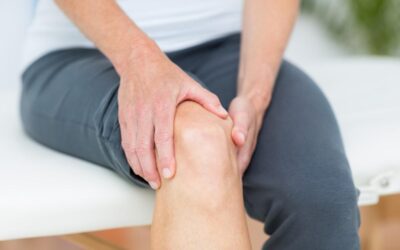Car accidents injure millions of people every year on American roadways, causing a wide array of injuries — some relatively mild and some causing lifelong disability. While many injuries cause symptoms that are immediately apparent, others can take some time to show up.
It’s tempting to think that when an injury doesn’t cause immediate pain, it’s no big deal. But sometimes, those delayed symptoms can be a sign of a more serious underlying injury that can take a toll on your health and your life.
Hasan Badday, MD, and his team at Pacific Pain and Regenerative Medicine in Irvine and Los Angeles, California, provide comprehensive initial evaluations following car accidents, helping identify injuries before complications happen.
Here’s what we want you to know about delayed pain and why prompt medical care is so important for your healthy future.
Accident injuries: Why some pain is delayed
Some delayed pain symptoms happen because of the type of injury or the way your injury occurs. For instance, if your injury causes some type of internal damage, like a muscle strain or bleeding, the initial effects may be quite mild. Over time, though, the damage becomes more extensive, and symptoms start to appear.
Whiplash is a good example of a common car accident injury that’s often associated with delayed pain. That’s because whiplash causes swelling that can intensify over the following days, eventually pressing on nerves or blood vessels.
Some back injuries cause delayed pain symptoms for the same reasons: Worsening swelling presses on nerves in your spine, or disc problems become more apparent as you go about your routine following an accident. In fact, many soft tissue injuries feel worse in the days following the accident, usually due to muscle soreness or other injuries to your tendons or ligaments.
Other times, you won’t feel the initial pain of an accident because of how your body reacts at the time the accident occurs. Car accidents are traumatic events, and typically, your body responds to trauma by releasing a surge of a hormone called adrenaline. Once adrenaline is in your bloodstream, it helps blunt pain sensations, which means you may not realize the full extent of your injuries until some time afterward.
The importance of prompt medical care
Even if you don’t need extensive medical care following a car accident, you should still be medically evaluated. As an experienced pain management physician, Dr. Badday is skilled in identifying subtle signs of injury following accidents, preventing painful symptoms and more severe tissue damage moving forward.
In addition to a thorough medical evaluation, Dr. Badday asks lots of questions about your accident to help him determine the types of injuries you’re most likely to have sustained.
Injuries like concussions may cause few or no noticeable symptoms initially, even though they can be very serious. Dr. Badday performs exams to identify subtle signs, and he also helps you (and your loved ones) know what signs to look for, so you can seek additional care right away.
Having a medical evaluation is also very important for the insurance claim process. Having a complete record of medical care right from the start can help ensure you get the compensation you need and deserve following your accident. If you delay seeking care, it can be harder to prove that your injuries stem from your accident and not another event.
Schedule a medical evaluation today
Car accidents vary in how they happen and how they affect your body. Delaying care after a motor vehicle accident can result in more serious problems developing in the future.
If you’ve been in a car accident, we can help. To find out more, book an appointment today online or over the phone at the Pacific Pain and Regenerative Medicine location closest to you.









